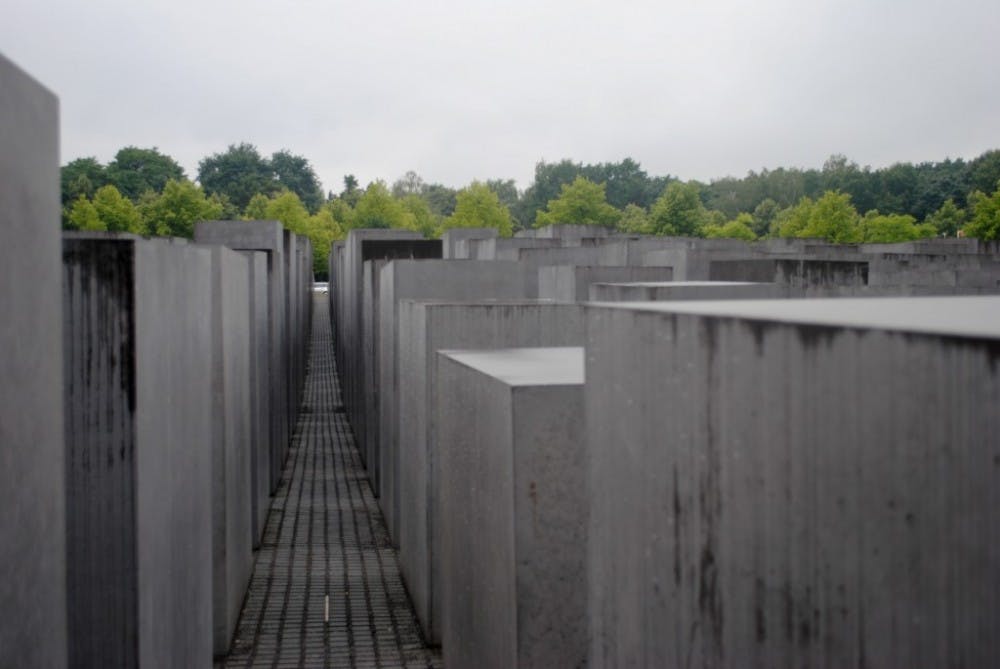This summer, Melissa Kansky participated in The Germany Close-up Fellowship, a program funded by the German government that invites Canadians and Americans to explore how the nation has confronted its history.
To understand how remnants of the past creep into present identity, one only needs to look at Germany, a nation, which despite its demonstrations of apology and progress, still carries the burden of the Nazi regime.
"Germany is dealing with the Holocaust more than anyone," said Martin Schubert, a German-Jew and journalist.
The Memorial to the Murdered Jews of Europe occupies the most expensive land in Berlin, located between the embassies of the historic Allied nations and within walking distance of the Reichstag, Germany's Parliament. The stoic stone structure announces the crimes of the nation's previous government, even as the population moves further away from the World War II generation. Yet, for some the sign of the shameful past communicates a commitment to tolerance.
"While the Jewish perspective is 'never again' victims, the Germans is 'never again' Hitler, 'never again' perpetrators," Schubert said.
While it is certainly possible to distinguish modern Germany from the one deemed responsible for the war crimes of World War II, its history still informs current policies and international relations.
"The 6 million are there," said Alan Posener, a historian and journalist who spoke with the 30 program participants.
When considering issues regarding the Middle East, Germany has to weigh the decision to create a solid European Union position or maintain a close connection to Israel, according to Philipp Wendel, desk officer for the Division for the United States and Canada in the German Federal Foreign Office.
Germans want to do something different than their parents, provoking them to demonstrate a commitment toward Israel, said Tal Gat, head of the public relations department for The Embassy of the State of Israel in Berlin.
Nevertheless, the effort to dilute the influence of Germany's past deepens the connection between history and national identity.
"The Holocaust will always be in the background of Jewish-Israeli relations," Gat said.
But, the argument to reduce the connection to Israel generates resentment among the younger generation who fear that the historical shame silences any negative opinion concerning the Jewish State, Posener said.
"Anti-Israel boycotts won't stand a chance here," he said, "not because people don't hold the same beliefs, but because of the history."
While Posener said some argue Germany's historical past challenges freedom of expression, he refuted the validity of such fears. Furthermore, Schubert observed the opposite, where the desire to repair relations might unintentionally translate to a further offense. Schubert recalled an incident when the girlfriend of a friend asked if Jews had to pay taxes in Germany and failed to recognize how such a question could be perceived as anti-Semitic. The attempt to diminish the villainous characterization resulted in alienation.
In an effort to establish a normalcy between the two populations, Toby Axelrod, a journalist for the Jewish Telegraphic Agency in Berlin, encouraged Germans to criticize Israel so that the formerly oppressed group is treated like any other.
Gesine Palmer, a representative of the German-Israeli Society, attributed the hesitancy to criticize to the nation's shameful history.
"We try to be normal and can't be normal," she said.
But while the past bleeds into modern relationships, Schubert acknowledged both parties should abandon the distance between the two groups.
"The view to be afraid of the German language is something Freudian," he said.


